Lawyers representing three alleged British victims of Andrew Tate say a failure to prosecute him sends the message to young men that they can ‘rape with impunity’.
In a letter to Stephen Parkinson, Director of Public Prosecutions, they say inaction by police and prosecutors also conveys to women that the British criminal justice system will not protect them from sexual violence.
McCue Jury & Partners is representing three women who have accused the misogynist social media influencer of raping and sexually and physically assaulting them on multiple occasions when he lived in the UK.
He is alleged to have sent one a text message saying ‘I love raping you’.
Matthew Jury, a partner at the law firm, said Hertfordshire police had a ‘dossier of evidence’ supporting the women’s allegations, including an eyewitness to one of the rapes and text and audio messages from Tate but the women were told in 2019 he would not be facing charges due to, in part, a lack of medical evidence.
Mr Jury has now written to Mr Parkinson calling on him to reconsider the decision not to charge him.
In the letter, seen by the Daily Mail, he said the lack of progress had left the women ‘feeling trapped and in a state of paralysis with no confidence in the institutions they had trusted to protect them’.
The violent misogyny Tate shares online has been linked to a number of crimes including the murder of BBC racing commentator John Hunt’s wife Carol, 61, and two daughters Louise, 25, and Hannah, 28, at their home in Bushey, Hertfordshire, in July 2024 by Kyle Clifford.

Andrew Tate (R) and his brother Tristan speak to the media as they arrive in Romania back from US, in Bucharest March 22, 2025
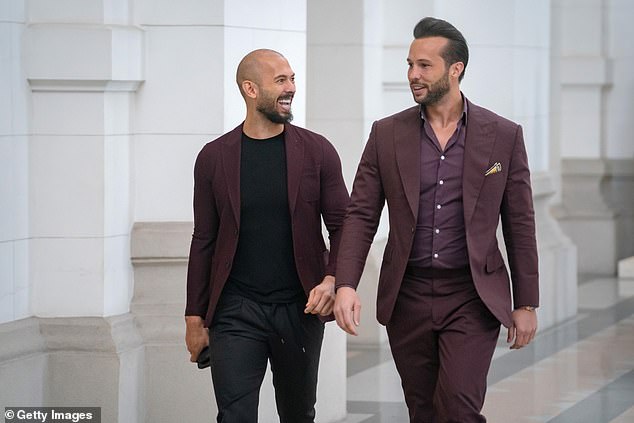
Andrew Tate (left) and his brother Tristan Tate walk inside the Court of Appeal on October 15, 2024 in
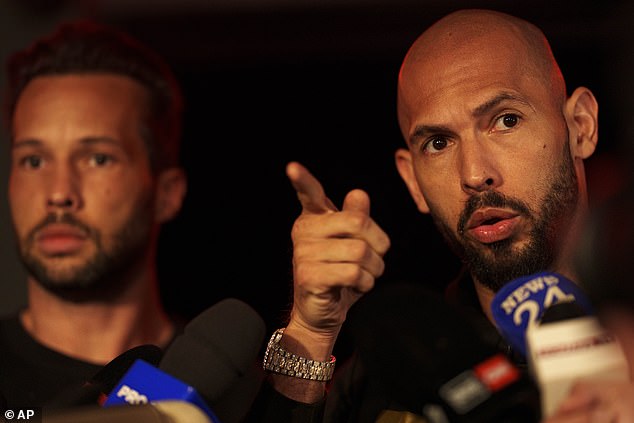
Crossbow killer Kyle Clifford watched Andrew Tate’s content before murdering Louise Hunt, Amy Hunt and Carol Hunt last July
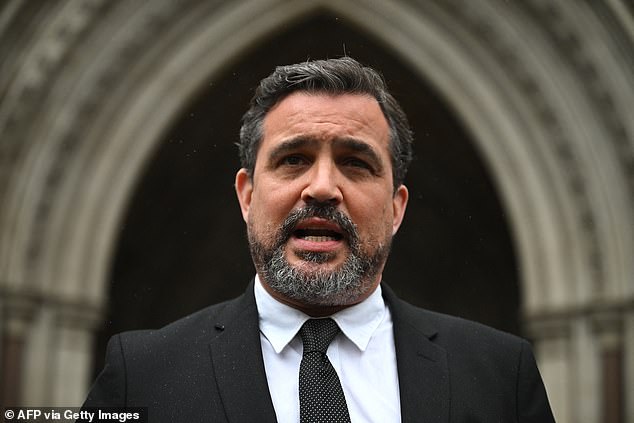
Lawyer Matthew Jury said a failure to prosecute Andrew Tate sends the message to young men that they can ‘rape with impunity’
In the letter, the lawyer highlighted the ‘ongoing and devastating effects that Tate is having on young men by encouraging violence towards women’.
He said: ‘Any failure to prosecute Tate regarding these allegations conveys a message to these young men that they, too, can rape with impunity and to UK women that the criminal justice system will not protect them from other perpetrators of sexual violence.’
Mr Jury said the victims believe that had it not been for the ‘perceived failings’ of Herts police and the Crown Prosecution Service, many other women might have been spared the horrific abuse they allegedly suffered at the hands of Tate.
Tate and his brother, Tristan, 36, face trial in Romania for rape and human trafficking linked to his ‘sex cam business’ based in Bucharest. Tate is also the subject of a European arrest warrant from Bedfordshire police for unrelated rape allegations. The Tates deny all the claims.
The three British women allege Andrew Tate raped and sexually and physically assaulted them on multiple occasions, as well as subjecting them to coercive and controlling behaviour between 2013 and 2015.
They reported the allegations to police but following a four-year investigation were told in November 2019 he would not be charged.
The lawyer said the women believe police ‘did not take them seriously from the outset’ and they received very few updates during the investigation.
In April 2023, the lawyers wrote to Herts police asking them to reopen their investigation into Tate and were told again there was not enough evidence to charge.
In the letter to the DPP Mr Jury said: ‘We recognise the challenges in prosecuting certain rape cases, as the nature of the crime often means there is a lack of evidence.
‘However, given the strength of our clients’ evidence and the consistency and number of nearly identical allegations made by unrelated women in the UK and Romania, we struggle to understand how the decision was made not to prosecute Tate.
‘While our clients are pleased that the victims whose complaints are the subject of the Bedfordshire investigation may see justice served, they feel left behind.
‘As Director of Public Prosecutions, we ask that you re-visit this matter and instruct the CPS to review this matter and make a fresh assessment based on the available evidence as to whether the investigation should be re-opened.’
The three women and another alleged victim are now pursuing civil action against Tate for coercive control. Two of the women who worked for his online sex business in Luton, Bedfordshire, in 2015 while the other two were former girlfriends.
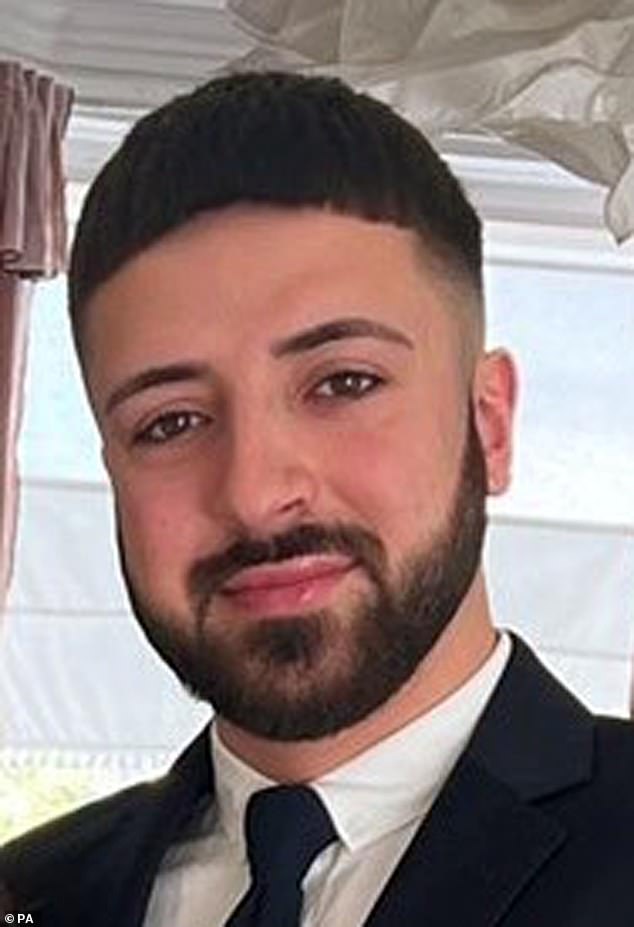
Crossbow killer Kyle Clifford watched Andrew Tate’s content before murdering Louise Hunt, Amy Hunt and Carol Hunt last July
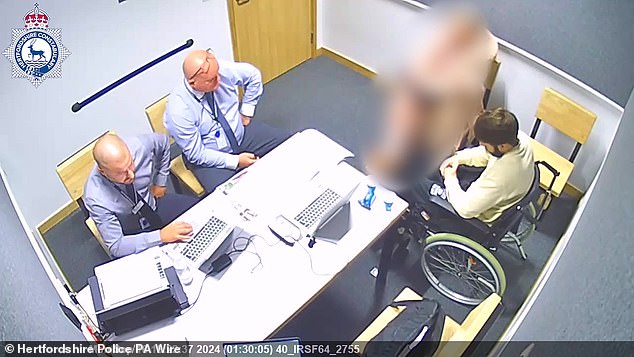
Kyle Clifford’s police interview

Louise (left), sister Hannah (centre) and mother Carol Hunt who were murdered by Kyle Clifford
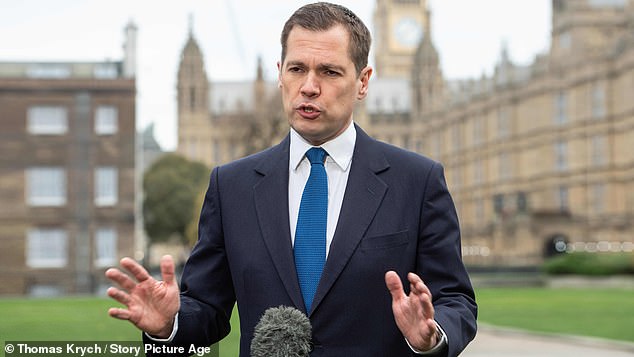
Shadow justice secretary Robert Jenrick said the case for reopening the police investigation was ‘very strong’
Shadow justice secretary Robert Jenrick said the case for reopening the police investigation was ‘very strong’.
‘I have serious concerns that the initial investigation was flawed and missed important evidence,’ he said.
‘In light of new evidence and victims coming forward, I urge the Director of Public Prosecutions to look at the case again and consider whether it should be reopened.
‘While respecting operational independence, the Justice Secretary should be raising this urgently too. Nobody can be above UK law, no matter how powerful they think they are.’
A Crown Prosecution Service spokesman said: ‘Cases involving allegations of serious sexual violence are always reviewed by specialist prosecutors with great care and consideration.
‘We can confirm we have received a letter and will respond in due course.’
Tate’s solicitor, Andrew Ford of Holborn Adams, said: ‘Matters should not be reopened or re-investigated purely on the basis that the complainant doesn’t like the decision made.
‘The decisions made by the CPS in 2019 were made upon a full review of the evidence.
‘Any victim’s right to review would be well out of time and the rules of law should not change purely based on the profile of the subject of the allegations.’
Herts police declined to comment but pointed to an earlier statement in which it acknowledged delays in the case.






